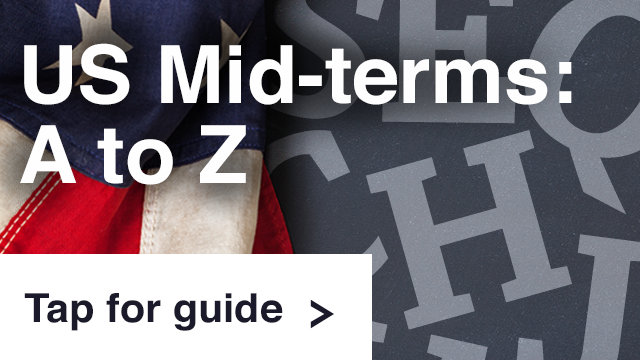Your US mid-term elections daily digest
- Published
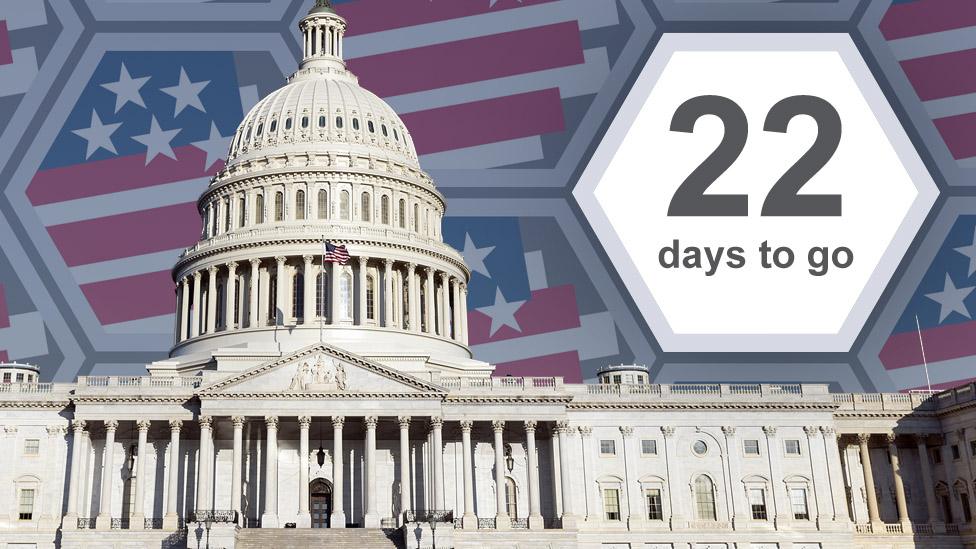
Just over three weeks remain until the US elections that will help define the rest of Donald Trump's presidency.
The mid-term elections will see people vote for members of both chambers of Congress, as well as for governors in 36 out of 50 states.
Between now and then, we'll bring you updates and all the best analysis every weekday in this round-up.
One number
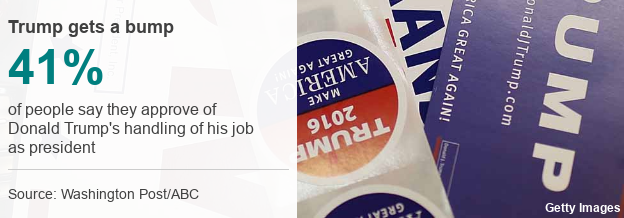
A joint opinion poll by ABC News and the Washington Post of 1,144 adults across the country, external suggested that 41% approved of President Trump's performance. The number was slightly higher among registered voters.
This is actually an increase of 5% on the last poll conducted in August. But at that point, President Trump's approval ratings were at an all-time low.
For comparison, President Obama's were at 45% before the 2010 mid-terms, when Democrats saw some of the biggest electoral losses in US history.
Reasons cited for similar recent bumps for Republicans at state level have included the strong economic performance and the successful confirmation of Brett Kavanaugh on to the US Supreme Court.
But interestingly, a majority (51%) of people polled by the Washington Post and ABC said they disapproved of the Senate's vote to confirm Kavanaugh - and 33% said they were more likely to vote for Democrats this year as a result (39% said their vote would remain unchanged, and 27% said they were more likely to vote Republican).
One picture
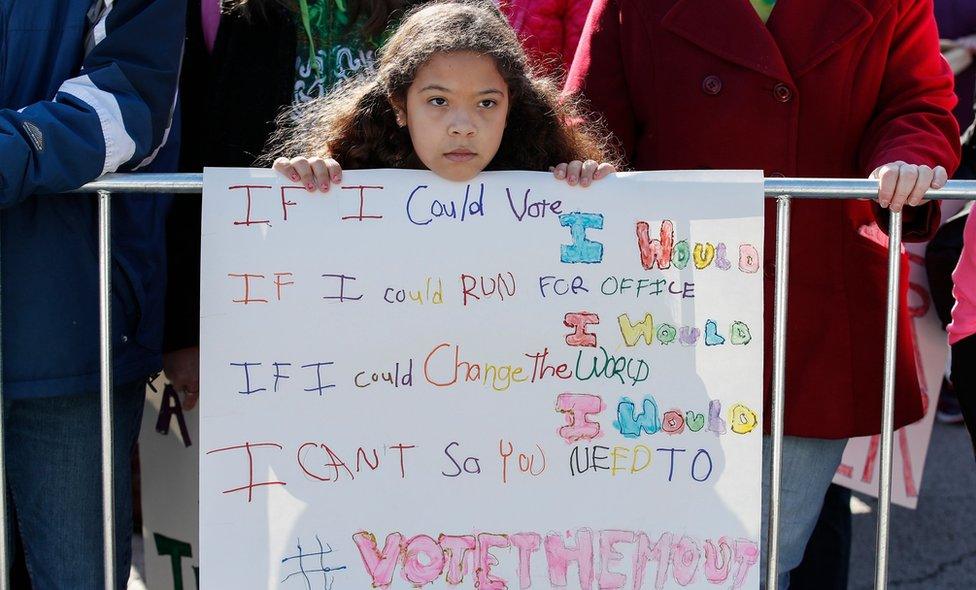
Several thousand people turned out in Chicago on Saturday for what was officially a march to encourage people to vote - but was unofficially a march against President Trump.
The Chicago Women's March followed similar events in January this year and last, and while it wasn't as large as those demonstrations, it still drew significant numbers.
"The whole Brett Kavanaugh thing just drove me over the edge," one demonstrator, Liz Flores, told CBS News.
One race to watch
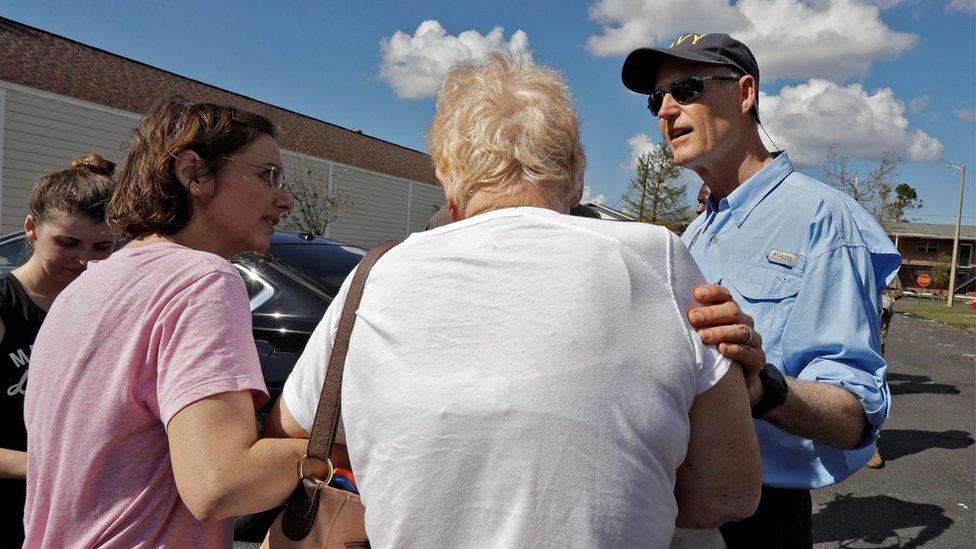
Rick Scott and offending hat meet a family displaced by Hurricane Michael
We're at the stage of the mid-terms campaign where a candidate's hat has proven to be a divisive issue in one race.
Rick Scott is governor of Florida and Republican nominee for senator. At the moment, his race against Democrat Bill Nelson is too close to call.
As happened a few times in recent years, Scott has been meeting the victims of storm damage after Hurricane Michael hit the state last week.
And, as in previous years, he was photographed wearing a Navy baseball cap - Scott was a radar operator for the navy.
Now, a left-leaning veterans' group, VoteVets, has paid $4m (£3m) for ads featuring a veteran attacking Scott for wearing the hat.
This is all because a hospital company had to pay $1.7bn in fines and damages for defrauding healthcare programmes (including one for veterans) while under Scott's ownership.
The Scott campaign has now countered the criticism with comments from other veterans endorsing him (two weeks after his campaign released an ad saying he had taken responsibility for the fraud, external).
Will the ads hit his campaign? Well, the same line of attack was used against him when he ran for governor - and won.
- Published12 October 2018

